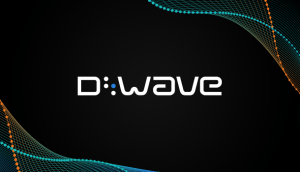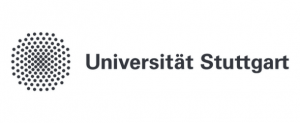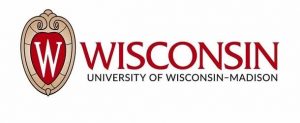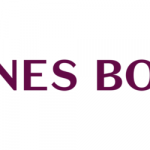Quantum News Briefs June 27: Leveraging the principles of quantum cryptography for solving national issues, The role of today’s quantum technology in fueling a future-proof business, University of Stuttgart purchases Nano Dimensions DragonFly IV System for quantum sensor development + MORE

Quantum News Briefs June 27:
Leveraging the principles of quantum cryptography for solving national issues

There’s a crucial intersection between national security and quantum cryptography, and many implications of quantum computing on traditional encryption methods. Through a comprehensive examination of these crucial issues, author Daniel Lawrence wrote a lengthy article in Cryptopolitan “to shed light on the vital role that quantum cryptography can play in protecting sensitive national information and ensuring the integrity and confidentiality of communications in an era defined by rapid technological advancements and heightened cyber threats.” Quantum News Briefs summarizes.
As nations engage in a race to develop quantum computing capabilities, the stakes have never been higher in the realm of national security. The immense power of quantum computers to solve complex mathematical problems at an exponential speed poses a significant risk to traditional encryption methods that rely on the difficulty of factoring large numbers. This vulnerability has profound implications for the protection of sensitive government communications, military operations, financial transactions, and critical infrastructure, all of which form the backbone of a nation’s security apparatus. Consequently, governments and organizations are compelled to explore alternative cryptographic solutions that can withstand the potential onslaught of quantum attacks. Quantum cryptography, with its ability to provide secure communication channels that are mathematically provable and immune to the computational abilities of quantum computers, has emerged as a promising field of research and development.
The implications of quantum computing on encryption are profound. Traditional encryption methods rely on the computational difficulty of factoring large numbers to ensure the security of encrypted data. However, Shor’s algorithm, developed by Peter Shor in 1994, demonstrated that a sufficiently powerful quantum computer could factor large numbers efficiently, rendering many existing encryption algorithms vulnerable. This has prompted a growing sense of urgency among governments, industries, and cryptographic experts to explore alternative solutions that can withstand the power of quantum attacks.
Quantum cryptography has emerged as a potential solution to address the vulnerabilities posed by quantum computing. Unlike traditional encryption, which aims to make the underlying mathematical problem computationally hard, quantum cryptography leverages the laws of quantum mechanics to provide unconditional security. The cornerstone of quantum cryptography is quantum key distribution (QKD), a protocol that enables the secure exchange of encryption keys between parties.
The adoption of quantum cryptography as a secure communication solution goes beyond technical considerations and delves into the realm of geopolitics. As nations and governments grapple with the increasing importance of securing their sensitive information in a quantum computing era, geopolitical factors play a crucial role in shaping the landscape of quantum cryptography adoption.
The advent of quantum cryptography brings forth profound implications for national security strategies around the world. As quantum computing advances, the vulnerability of traditional encryption methods becomes increasingly apparent, posing significant risks to the confidentiality, integrity, and availability of sensitive information. In response, governments must reevaluate their approaches to safeguarding national interests and prioritize the integration of quantum cryptography into their security frameworks.
The rise of quantum cryptography represents a critical turning point in the realm of national security. As quantum computing capabilities advance, the vulnerabilities of traditional encryption methods become increasingly apparent. Click here to read the original article in-entirety.
The role of today’s quantum technology in fueling a future-proof business

The role of today’s quantum technology in fueling a future-proof business, writes Alan Baratz, CEO of D-Wave in his June 26 Forbes article in Forbes. Quantum News Briefs summarizes.
Baratz explains, “An emerging technology—quantum computing—is available to help companies solve these complex optimization problems. Companies and governments around the world are turning to quantum computing to accelerate problem-solving and decision making for a broad range of common organizational tasks, including supply chain management, manufacturing efficiency, employee scheduling, fraud detection and waste and emissions reduction.”
For some industries, investing in quantum computing solutions today may not be a top priority. Certain businesses are not as focused on digital transformation or data-intensive processes. For a brick-and-mortar paper printing company trying to compete with online distribution channels, for example, there may be more immediate problem areas to address.
As time goes on, however, adopting this technology will likely become a necessity. It is not a matter of if quantum computing can help an organization reach its goals; it’s a matter of when and how. While quantum can most certainly contribute to most sectors, it is ultimately up to leadership teams to determine the right time for investment.
The business value of quantum is real. Better performance can be achieved through the use of quantum hybrid technology for certain commercial applications when compared with existing techniques. Those who do not take advantage of it could lose a competitive edge in the marketplace and risk falling behind.
Quantum can uncover more optimal results that are unattainable by classical computers alone. Quantum-hybrid applications—those that marry classical and quantum computational power—can supercharge optimization problem solving. Many industries are creating these applications today. Click here to read the original article in-entirety.
University of Stuttgart purchases Nano Dimensions DragonFly IV System for quantum sensor development
 Nano Dimension announced that the University of Stuttgart has purchased their DragonFly IV system, a cutting-edge Additively Manufactured Electronics (AME) and multi-dimensional polymer, metal & ceramic Additive Manufacturing (AM) 3D printer on June 26. Quantum News Briefs summarizes BestStocks June 26 article.
Nano Dimension announced that the University of Stuttgart has purchased their DragonFly IV system, a cutting-edge Additively Manufactured Electronics (AME) and multi-dimensional polymer, metal & ceramic Additive Manufacturing (AM) 3D printer on June 26. Quantum News Briefs summarizes BestStocks June 26 article.
The DragonFly IV system will be utilized in the development of quantum sensors, showcasing the innovative capabilities of the 3D-electronic-integration technology. This will pave the way for the next generation of scalable quantum devices, which will revolutionize the microelectronic and photonic integration industry. The financial details of the sale were not disclosed. In other news, Barrington Research analyst Vincent Colicchio has maintained an Outperform rating and a $165 price target for Concentrix (NASDAQ:CNXC), which seems to be unrelated to the Nano Dimension announcement.
Intel and HRL Laboratories collaborate with UW-Madison to accelerate quantum computing research
 UW–Madison’s separate partnerships with Intel and HRL Laboratories are part of a first round of collaborations announced June 14 by the LPS Qubit Collaboratory (LQC), a national Quantum Information Science Research Center hosted at the Laboratory for Physical Sciences (LPS). Established in support of the National Quantum Initiative Act, LQC is facilitating partnerships between industry and academic and national labs to advance research in quantum information science. Quantum
UW–Madison’s separate partnerships with Intel and HRL Laboratories are part of a first round of collaborations announced June 14 by the LPS Qubit Collaboratory (LQC), a national Quantum Information Science Research Center hosted at the Laboratory for Physical Sciences (LPS). Established in support of the National Quantum Initiative Act, LQC is facilitating partnerships between industry and academic and national labs to advance research in quantum information science. Quantum
“These collaborations are great examples of UW–Madison partnering with industry on the development of important technologies, in this case semiconductor quantum computers,” says physics professor Mark Eriksson, the UW–Madison lead on the partnerships.
“These collaborations are great examples of UW–Madison partnering with industry on the development of important technologies, in this case semiconductor quantum computers,” commented physics professor Mark Eriksson, the UW–Madison lead on the partnerships.
Quantum computing uses the properties of quantum physics to perform computations. Not just faster versions of classical bits, the quantum bits, or qubits, in a quantum computer are fundamentally different than their classical counterparts. Because qubits are intrinsically quantum, they have the potential to solve certain problems — calculations for chemical processes or materials design, for example — more efficiently than classical computers. Silicon-based semiconductor qubits are among the most promising quantum computing technologies.
“One of the motivations for silicon-based qubits has always been that they are electronic devices that can be fabricated using technology very similar to what’s used to make integrated circuits,” Eriksson says. “Companies like Intel and HRL are experts in such technology, and they bring massive expertise and infrastructure into the game.”
With the just-announced collaborations, Intel and HRL Laboratories will send state-of-the-art chips to Eriksson’s group, which will perform experiments to develop improved quantum operations. Like any good collaboration, all partners are expected to benefit in some way. The research conducted with the chips will inform the companies about their devices and ways to improve them; UW–Madison students will conduct hands-on research in partnership with industry, advancing research in the field while gaining real-world experience. Click here to read article in-entirety on U-W Madison website.
Sandra K. Helsel, Ph.D. has been researching and reporting on frontier technologies since 1990. She has her Ph.D. from the University of Arizona.



















